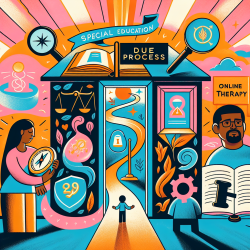Understanding Special Education Due Process Hearings in DC
For parents of children with disabilities in the District of Columbia, navigating the special education system can sometimes be a challenging journey. This guide aims to simplify the process of due process hearings, empowering you with the knowledge and resources to ensure your child receives the Free Appropriate Public Education (FAPE) they are entitled to under the Individuals with Disabilities Education Act (IDEA).
What is a Due Process Hearing?
A due process hearing is a formal legal proceeding where parents and the school district can resolve disagreements about a child's special education needs. These hearings are part of the procedural safeguards under IDEA, ensuring that your child's educational rights are protected.
When and How to File a Due Process Complaint
If you believe your child's educational rights are being violated, such as not receiving appropriate services as outlined in their Individualized Education Program (IEP), you can file a due process complaint. This complaint initiates the hearing process.
- Identify the issue: Clearly describe the problem and how it affects your child's education.
- Propose a solution: Suggest specific actions or services that would resolve the issue.
- Submit the complaint: Send it to the Office of Dispute Resolution (ODR) and the school involved.
The 30-Day Resolution Period
Once a complaint is filed, a 30-day resolution period begins. During this time, the school district has the opportunity to resolve the issues outlined in the complaint. A resolution meeting is held to discuss possible solutions.
The Role of Mediation
Mediation is a voluntary process where a neutral third party helps both sides reach an agreement. It can be requested before or during the due process hearing timeline. Mediation offers a less formal and often quicker resolution to disputes.
The 45-Day Hearing Period
If the issues are not resolved during the resolution period, the process moves to a 45-day hearing period. During this time, both parties present evidence and call witnesses to support their case. A hearing officer, who acts like a judge, makes the final decision.
Preparing for the Hearing
Preparation is key to a successful hearing. Gather all relevant documents, such as evaluations, IEPs, and correspondence with the school. You may also want to bring witnesses who can support your case.
After the Hearing: The Hearing Officer Determination
The hearing officer's decision, known as the Hearing Officer Determination (HOD), outlines the outcome of the hearing and any actions the school must take. If you disagree with the HOD, you have the right to appeal the decision in court.
Legal Resources and Support
Several organizations offer free or low-cost legal services to help parents navigate the due process hearing. These resources can provide invaluable support and guidance throughout the process.
For more detailed information, please follow this link.










